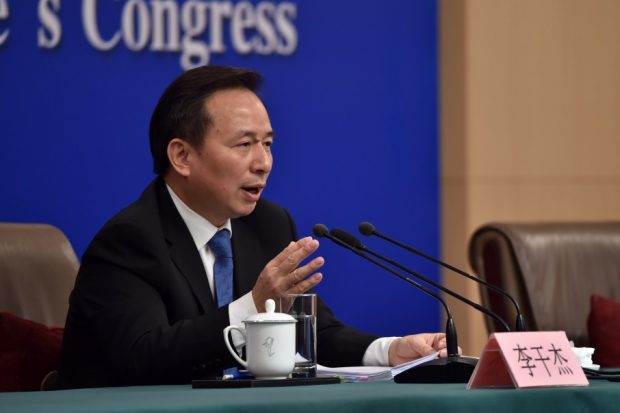
China vows to win battle against pollution

Photo: Weng Qiyu, People’s Daily Online)
China has reaffirmed its determination to win the tough battle against pollution and pledged that boosting the economy will not come at the price of a degraded environment. Speaking to reporters at a press conference on the sidelines of the annual legislative session on March 11, China’s Ecology and Environment Minister Li Ganjie vowed to coordinate efforts of environmental protection and economic development in 2019, a critical year for winning the battle. Li claimed that China has made progress in addressing the prominent problems on environmental protection, especially along the Yangtze River Economic Belt, and promised the public that the monitoring data are accurate and authentic. However, he also admitted that the battle remains an arduous task and there were huge gaps between cities and regions. Chinese analysts said that although previous practices in dealing with environmental problems have led to the shutdown of factories and a decline in local fiscal revenue, in the long run, the battle against pollution will bring a new economic growth point and help China switch from high-speed growth to high-quality growth.
No crossing red line
In 2018, the proportion of blue-sky days in 338 cities at or above the prefectural level increased by 1.3 percentage points to 79.3 percent, with PM 2.5 concentrations dropping 9.3 percent year-on-year, Li said. Meanwhile, to fight smog, China has expanded its coal-to-gas and coal-to-electricity projects to 35 cities in 2018 from 12 cities the previous year, Li noted. As for protecting the Yangtze River, Li said 99.9 percent of the 1,474 drinking water sources in cities above county-level along the Yangtze River Economic Belt, stringing up 11 provinces and municipalities from west to east, have had their problems resolved. Li added that over 90 percent of the 12 “black and malodorous water bodies” in provincial capital cities have been cleaned up, while prefecture-level cities are catching up.
Li also reiterated what President Xi Jinping had said when he attended a panel discussion with deputies to the National People’s Congress from Inner Mongolia on March 5: Local governments should not pursue economic growth at the cost of the environment when economic development encounters difficulties. Li marked it as a key guide for the future battle against pollution. At the panel discussion, Xi stressed efforts to maintain strategic resolve in enhancing the building of ecological civilization and to protect the country’s beautiful scenery in the northern border areas. Xi warned local governments against launching new projects to boost economic growth by sacrificing the environment when its economic growth encounters difficulties, and not to even consider trying to cross the ecological red line. Xi underlined a resolute and effective fight to prevent and control pollution, saying prominent environmental issues the people are strongly concerned about must be addressed properly.
New growth point
There has been a misunderstanding that green development will restrain economic growth. In fact, environmental protection itself can be a very promising field for investment, Xu Hongcai, assistant minister at the Ministry of Finance, told the Global Times. The governments have discarded their previous simple approach and are trying to find a balance between fighting pollution and stabilizing growth, Xu said. For example, instead of shutting factories down, local governments are supporting companies which upgrade facilities, increasing investment to them and helping laid-off employees find new jobs, he said. The green industry is also a new economic growth point. Some companies which invested in pollution treatment facilities now experience record high profits, Xu said. The city of Hengshui in North China’s Hebei Province is one example. The Hengshui government provides environment management guidance to help enterprises achieve green development. Thanks to the environment protection upgrade, Hengshui Baili Rubber Products Co. bid farewell to its previously disheveled factory area, meeting the requirements of the European market, media reports said.
By Cao Siqi & Wang Cong
(Global Times)


